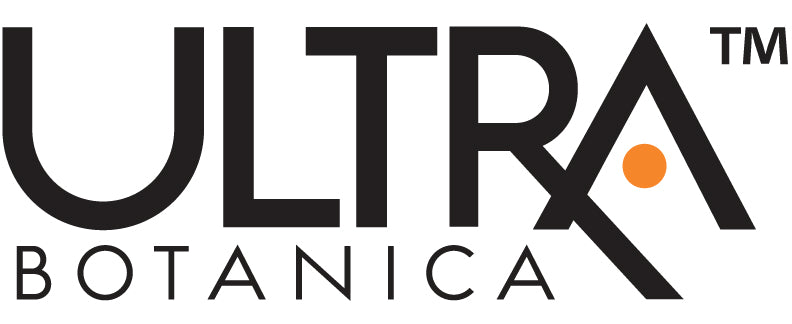As the leaves turn golden and the days grow shorter, fall brings more than pumpkin spice and cozy sweaters. It also marks the start of what’s often called “cold and flu season,” when our immune systems are often put to the test.
Supporting immunity isn’t about quick fixes or miracle cures—it’s about a holistic lifestyle, maintained over a period of months (or years).
While no single supplement or practice can guarantee protection, research shows that a balanced approach combining nutrition, sleep, exercise, hand hygiene, air quality, and targeted supplementation can help keep your immune system strong and resilient.
In this guide, we’ll explore science-based ways to support immune health this fall, covering:
-
Well-researched immune supporting supplements.
-
The role of sleep in immunity.
-
Exercise and physical activity.
-
Nutrition and fall-friendly immune foods.
-
Hand hygiene and personal habits.
-
Indoor air quality and filtration.
-
Stress, mindset and recovery.
Why Fall Challenges Our Immune Systems
As beautiful as fall is, fall can challenge our immune systems for various reasons:
-
Temperature changes. Cooler air and fluctuating humidity can weaken nasal passages and airways, making them more susceptible to viruses.
-
Indoor time, especially crowded indoor spaces means easier spread of germs.
-
Less sunlight. Lower vitamin D production from the sun can impair immune defense.
-
Less fresh air. As temperatures cool, people hang out indoors more than outdoors, and indoor air is often more toxic than outdoor air.
-
Seasonal stressors. Back-to-school, holiday prep, and busier than usual schedules often mean less sleep and more stress.
Fall doesn’t have to leave you feeling run-down. You can take proactive steps to help your immune system meet seasonal challenges head-on. Read on for the details.

The 2 Parts of Your Immune System
Your immune system has two parts, meant to protect you fully... The Innate Immune System and the Adaptive Immune System. Here’s what each part does to protect you from threats.
Innate Immune System (Your First Line of Defense)
This is your body’s “security guards at the front door.” It’s a built-in system. You’re born with it. It acts fast and automatically when germs show up. Basically, it doesn’t care what the germ is – be it bacteria, virus, or fungus – it just tries to block or destroy it. Fast.
Examples include:
-
Skin and mucus that physically block germs.
-
Stomach acid that kills swallowed microbes.
-
White blood cells that quickly attack anything suspicious.
In a nutshell, it’s quick but not very specific. It’s like a general alarm system that goes off whenever there’s trouble.
Adaptive Immune System (Your “Special Forces”)
This is your backup team that learns and remembers. It develops over time as you’re exposed to various germs or vaccines.
Your adaptive immune system takes longer to respond the first time, but it’s highly specific and targets the exact germ involved. And it creates a lasting memory, so that if the same germ returns for a visit, your body reacts much faster and stronger.
Examples include:
-
B cells that make antibodies that “tag” germs for destruction.
-
T cells that destroy infected cells or help direct other immune cells.
Your adaptive immune system is slower at first, but smarter overall. Like special agents that remember every criminal they’ve ever caught. It gets you the exact immune response you need to shut down the threat to a specific germ.
On the other hand, your innate immune system buys you time while your adaptive system gears up for action.
Well-Researched Supplements for Immune Health
There are many ways to lend your immune system consistent support that the season calls for, given the increased indoor time, and other seasonal considerations. Supplements can help give your body the tools it needs to fight that good fight.
Supplements should always complement and not replace a healthy lifestyle. Here are the immune supplements with the strongest scientific backing:

1. Vitamin D
D deficiency is common in fall and winter due to reduced sunlight. Vitamin D plays a crucial role in modulating both the innate and adaptive immune responses.
Studies show that adequate vitamin D status is linked with lower risk of respiratory infection.
Dosages: 600-2,000 IU daily is typical, higher under medical guidance. Note that vitamin D assimilation is highly variable depending on many personal factors.
It's important to ask your holistic practitioner to test your vitamin D3 levels every 6 months and adjust your vitamin D intake accordingly.
2. Vitamin C
Vitamin C supports immune cell function and acts as a powerful antioxidant. Studies in a wide variety of animals have shown vitamin C to be protective against infections, and to reduce the duration and severity of colds. But it won’t necessarily prevent them.
A meta-analysis showed that vitamin C seems to have greater benefits when cold symptoms are severe, compared to when they are mild.
Best food sources: citrus, bell peppers, kiwi, broccoli, and strawberries.
Dosage: Amounts can vary. For general daily support, men need about 90 mg and women need about 75 mg.
For Immune Support During Cold and Flu Season: Many experts suggest 200 to 500 mg/day to keep blood levels high, as vitamin C is water-soluble and excess is excreted.
Cochrane Reviews show that regular supplementation at or above 200 mg/day may shorten the duration and severity of colds in adults.
At the Onset of Illness: Some studies used 1,000 to 2,000 mg/day in divided doses at the start of cold or flu symptoms, showing a modest reduction in duration and severity.
Doses higher than 2,000 mg do not consistently show better results and may increase risk of diarrhea or GI upset.
3. Zinc
Zinc is essential for immune cell signaling. Research shows that zinc lozenges taken at the onset of cold symptoms may shorten duration by about 2 days. Dosage: 8-11 mg daily for adults for everyday immune support.
To add immune support at the beginning of an infection, up to 100 mg per day may be used for up to a week. Avoid chronic high doses of zinc, which can interfere with copper absorption.

4. Probiotics
Your gut is much more than merely a digestive organ. It is "Command Central" for your immune system. Probiotics don’t “boost” the immune system in the sense of causing it to go into overdrive.
Rather, it supports balance within the immune system and sends messages important to your immune function. Research shows that certain strains such as Lactobacillus and Bifidobacterium may reduce risk and duration of respiratory infections.
Most food sources such as yogurt, kimchi, and kefir don’t meet the scientific criteria to be called probiotics because their levels aren't high enough. Enjoy them as part of a healthy diet. But supplement with a quality probiotic at the same time.
Daily use of probiotics is needed, as probiotics don’t move into the gut permanently. They only stay for a short visit and then are gone. For a lasting influence, take them every day.
Probiotics follow a classification system – genus, species, and strain. Look for very specific indications and associated research. For example, Bifidobacterium lactis BS5. Not generic labels like Bifidobacterium.
5. Omega-3 Fatty Acids
Found in fatty fish such as salmon and sardines. Omega-3s help reduce inflammation. In addition, immune cells such as T cells and B cells have fatty membranes that omega-3s help support the flexibility of, improving cell communication.
Omega-3s also seem to keep the immune system balanced instead of in a “fight or flight” mode.
You can get omega-3s from 2 servings of fatty fish per week, or supplements. Consult with your doctor before adding them to your regimen, especially if you take blood thinners, as omega-3s also thin your blood.
6. Elderberry (Sambucus nigra)
Some studies suggest elderberry extract may reduce cold and flu symptoms, though evidence is limited. Here’s what we know so far...
Evidence for elderberry thwarting the common cold is limited and inconsistent.
For the flu, it's a bit more promising. A 2016 meta-analysis (Journal of Functional Foods, with 180 participants): Elderberry supplementation significantly reduced upper respiratory symptoms, especially for influenza, but sample sizes were small.
In a 2016 study of long-haul airline passengers, those who took elderberry extract had fewer and less severe cold episodes than placebo. In this study, passengers took 600 to 900 mg of elderberry extract daily, starting before travel and continuing through a few days after travel.
At first sign of cold/flu, 15 mL of elderberry syrup, up to 4x/day, for 3–5 days has the best evidence supporting it.
7. Lactoferrin
Lactoferrin is a naturally occurring protein found in milk, with antimicrobial and antiviral properties.
A 2021 meta-analyses comprising 7 randomized controlled trials and 1500 participants) showed it significantly reduced the incidence of respiratory tract infections, especially in children and in older adults.
In vitro studies show that lactoferrin can bind to cell receptors and block viral entry. Some small clinical studies suggest it also shortens symptom duration.

8. Quercetin
Quercetin is a plant flavonoid found in foods like apples, onions, and berries. It plays a key role in supporting immune health.
As a powerful antioxidant, it helps protect immune cells from oxidative stress, while also stabilizing mast cells to reduce histamine release, which can ease allergy symptoms.
Quercetin also shows antiviral activity according to PubMed, making it harder for certain viruses to replicate. Pairing quercetin with vitamin C amplifies its effects, as it helps the body retain vitamin C, an important immune nutrient, longer.
Taken together, these properties make quercetin a valuable compound for maintaining balanced, responsive immunity, especially during times of stress, seasonal change, or increased exposure to infections.
UltraAllergy is a recommended supplement that contains quercetin enhanced with Protisorb and NAC.
NOTE: Always consult your healthcare provider before starting new supplements, especially if you take medications or have chronic conditions.
Sleep: The Unsung Hero of Immunity
Sleep is one of the most powerful, yet often overlooked, factors in immune health. And that’s true, no matter what your age.
Immune Benefits of Sleep
Sleep reduces inflammation and strengthens T-cell function (which is crucial for fighting infections).
Research shows that people who sleep less than 6 hours per night are more likely to catch a cold, compared to those who get 7 to 8 hours sleep. Stress can reduce sleep quality, as can holiday busyness.
Which implies that it’s important to learn to say, “No,” as well as to learn ways to reduce stress – possibly with yoga, playing an instrument, meditation and prayer, exercise, and walking in nature.
Improve Sleep Quality
To improve sleep during the fall season or any season, keep a consistent sleep-wake schedule, even on weekends.
Limit screen time, especially in the evening, as blue light disrupts melatonin production. And screen time is often more of an evening temptation at a time of year when you tend to be inside more.
Create a personal wind-down ritual that includes reading (real books, not screens), herbal tea, yoga, and light stretching. Make sure your bedroom is cool, dark, and quiet.
Exercise and Physical Activity
Movement is free medicine for the immune system. But balance is key. Extreme exercise (marathons and such) may weaken your immune response and may sabotage your immune efforts.
Moderate exercise boosts circulation, enhances immune surveillance, and reduces inflammation. Overtraining or exhausting endurance exercise can suppress immunity, at least for the short term.
Best Fall Activities
-
Walking in crisp fall air (bundle up and enjoy the colors). Try to take a 30 minute walk per day.
-
Yoga or tai chi for balance, stress relief, and immune support.
-
Resistance training to maintain and build muscle, which supports immunity and overall resilience.
Research shows that moderate exercisers report fewer respiratory infections compared to sedentary individuals. So, don those tennis shoes and get your 150 minutes per week of walking plus 2 strength-training sessions. Your immune system will thank you.

Diet: Building Immunity Through Fall Foods
Your immune system needs a steady supply of nutrients. Fall is rich in immune-supporting produce.
Key Nutrients for Immunity
-
Protein. Needed for immune cell production. Sources: poultry, beans, lentils, fish, beef.
-
Fiber. Feeds gut microbes, which regulate immunity. Sources: whole grains, beans, fruits, vegetables.
-
Phytonutrients. Antioxidant compounds from colorful fall produce – oranges, red, yellow.
Great Immune-Boosting Fall Foods
-
Pumpkin & squash. Rich in beta-carotene, converted to vitamin A.
-
Cranberries & apples. Packed with antioxidants and fiber.
-
Brussels sprouts & kale. Contain vitamin C, K, and flavonoids.
-
Garlic & onions. Natural antimicrobial compounds.
-
Mushrooms. (shiitake, maitake). Contain beta-glucans that support immune health.
Practical Eating Tips
-
Fill half your plate with vegetables.
-
Focus on whole foods over processed foods or comfort foods.
-
Stay hydrated with water, herbal teas, and broths.
What you eat every day shapes your immune resilience more than any one single “superfood.”
Hand Hygiene and Seasonal Habits
Sometimes the simplest actions are the most effective. Here are some easy steps to incorporate:
-
Handwashing. Wash for at least 20 seconds with soap and water.
-
Hand sanitizer. Use alcohol-based (>60%) when soap isn’t available.
-
Avoid touching face. Especially eyes, nose, and mouth.
-
Cough etiquette. Cover mouth and nose with elbow or tissue.
-
Stay home if sick. Protect others and allow your body to heal.
Research shows that consistent hand hygiene can reduce respiratory illness by 16–21%, and other types of illnesses by even greater margins, making it a worthy endeavor.
Indoor Air Quality and Filtration
In fall, we spend more time indoors with sealed windows—making enhancing air quality a top need. Here are some ways to boost your indoor air quality.
-
HEPA filters: Capture airborne viruses, bacteria, dust, and pollen.
-
MERV-13+ HVAC filters: High-quality HVAC filters that can trap most allergens, smoke, bacteria, and even some viruses. A smart upgrade so long as your HVAC system can handle them.
-
Vacuum with a HEPA vacuum cleaner to pull toxins out of the air and off surfaces.
-
Humidity: Keep indoor humidity 40–50%—too dry irritates airways, too humid fosters mold.
-
Ventilation: Crack windows briefly during milder weather.
Research shows that cleaner indoor air reduces incidence of asthma, allergies, and respiratory infections. Your lungs are part of your frontline defense. Keep the air they breathe clean.

Stress, Mindset, and Immune Resilience
Chronic stress weakens immunity. Cortisol (stress hormone) suppresses immune function and increases inflammation. Yet most of us zip around with tremendous levels of stress.
It’s important for both short-term and long-term health to learn how to shed some of that stress. Managing stress is equally as important for immunity as eating your veggies. Creating a "thankfulness journal" can help change the focus to the positive things in our lives.
Fall Stress-Buster Ideas
-
Meditation or prayer. Even 5–10 minutes daily reduces stress.
-
Nature walks. Lowers blood pressure and cortisol.
-
Social connection. Strengthens both emotional and immune resilience.
-
Gratitude practices. Linked to improved sleep, lower stress, a positive outlook, and improved relationships.
Research shows that mind-body practices like meditation and yoga improve immune markers and lower inflammation.
Pulling It All Together: A Fall Immune Health Action Plan
Here’s an immune health action plan that you can adopt for use today:
Daily Habits
-
Prioritize 7–8 hours of sleep.
-
Move your body with 30 minutes of moderate activity.
-
Eat a plant-rich, protein-adequate diet.
-
Practice hand hygiene.
-
Manage stress with relaxation practices.
Weekly Habits
-
Meal prep immune-friendly soups and stews with beans, greens, and fall produce.
-
Social check-ins: call or meet a friend, join a group.
-
Change HVAC filters, vacuum with a HEPA filter.
Strategic Supplementation
-
Vitamin D if levels are low.
-
Vitamin C & zinc during cold/flu season.
-
Probiotics & omega-3s for gut and immune health.
-
Elderberry or lactoferrin for additional seasonal support.
-
Quercetin for allergy and immune support.
Conclusion: Adopt an Immune Lifestyle, Not a Quick Fix
Fall is a season of transition—and the perfect time to strengthen your immune system for the months ahead.
But instead of relying on trendy “immune boosters,” focus on research-backed, sustainable practices: sleep, movement, nutrient-rich foods, hand hygiene, clean air, and stress management.
Add in a few targeted supplements, and you’ll give your immune system the resilience it needs to carry you through fall and winter.
Healthy immunity is not built in a day. It’s cultivated day in and day out, season after season— just like the centenarians who live long, vibrant lives not because of a single secret, but because of a lifetime of consistent habits.
So as the leaves fall, take it as your cue: this is the season to nurture your body, care for your mind, and build the strong immune foundation you’ll need for a long, healthy life.

Frequently Asked Questions
1. What are the best supplements for immune health in the fall?
Vitamin D, vitamin C, zinc, probiotics, quercetin, and omega-3s are the most studied immune-support supplements. They can help reduce infection risk when combined with other healthy habits.
2. How does sleep affect the immune system?
Quality sleep strengthens immune cells and reduces infection risk. Adults should aim for 7–9 hours of consistent nightly rest, using the same sleep schedule every day.
3. Can exercise really boost immunity?
Yes. Moderate exercise improves circulation that delivers your immune cells throughout your system, reducing respiratory infections. However, overtraining can temporarily weaken immunity.
4. What foods support immune health in the fall?
Pumpkins, squash, kale, Brussels sprouts, apples, cranberries, garlic, onions, and mushrooms are rich in vitamins, antioxidants, and immune-supportive compounds.
5. How can I reduce germs and allergens indoors in the fall?
Use HEPA or MERV-13+ air filters, keep humidity between 40–50%, wash hands regularly, and practice good ventilation to reduce viral spread and allergens indoors.





Share:
Healthy Aging in the Fall Season: Lessons for Living to 90 and Beyond
Fall Declutter Guide: Organizing Tips for a Safe and Tidy Home